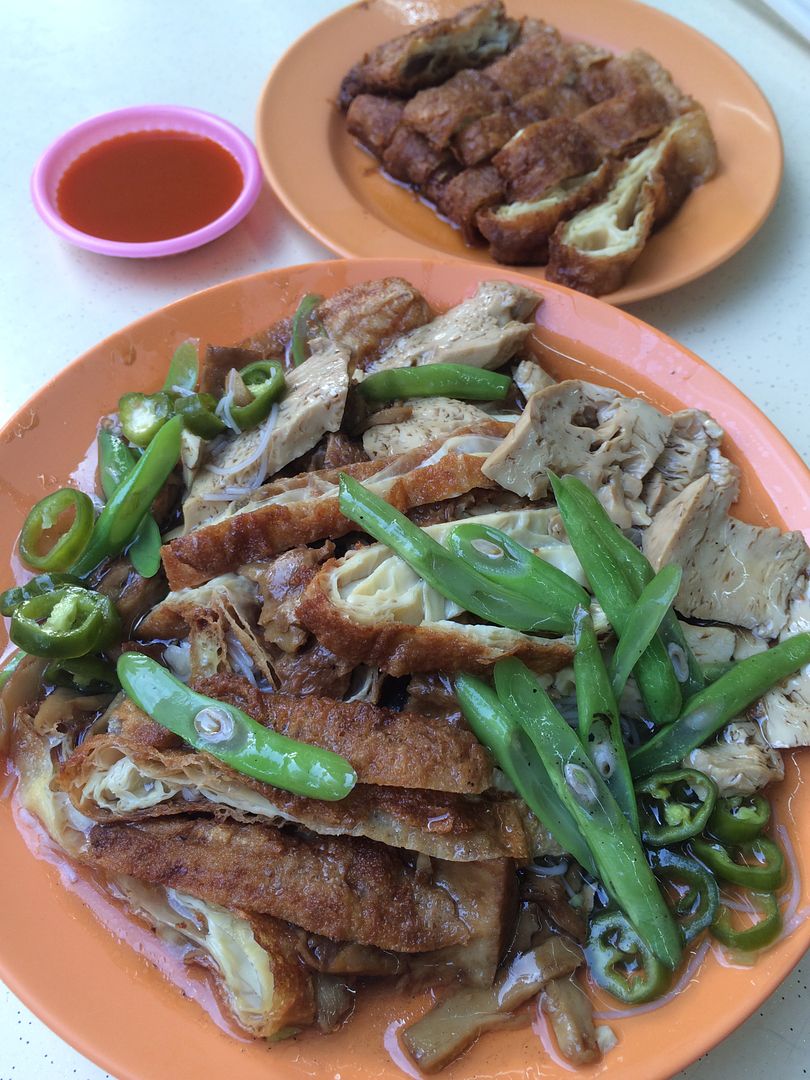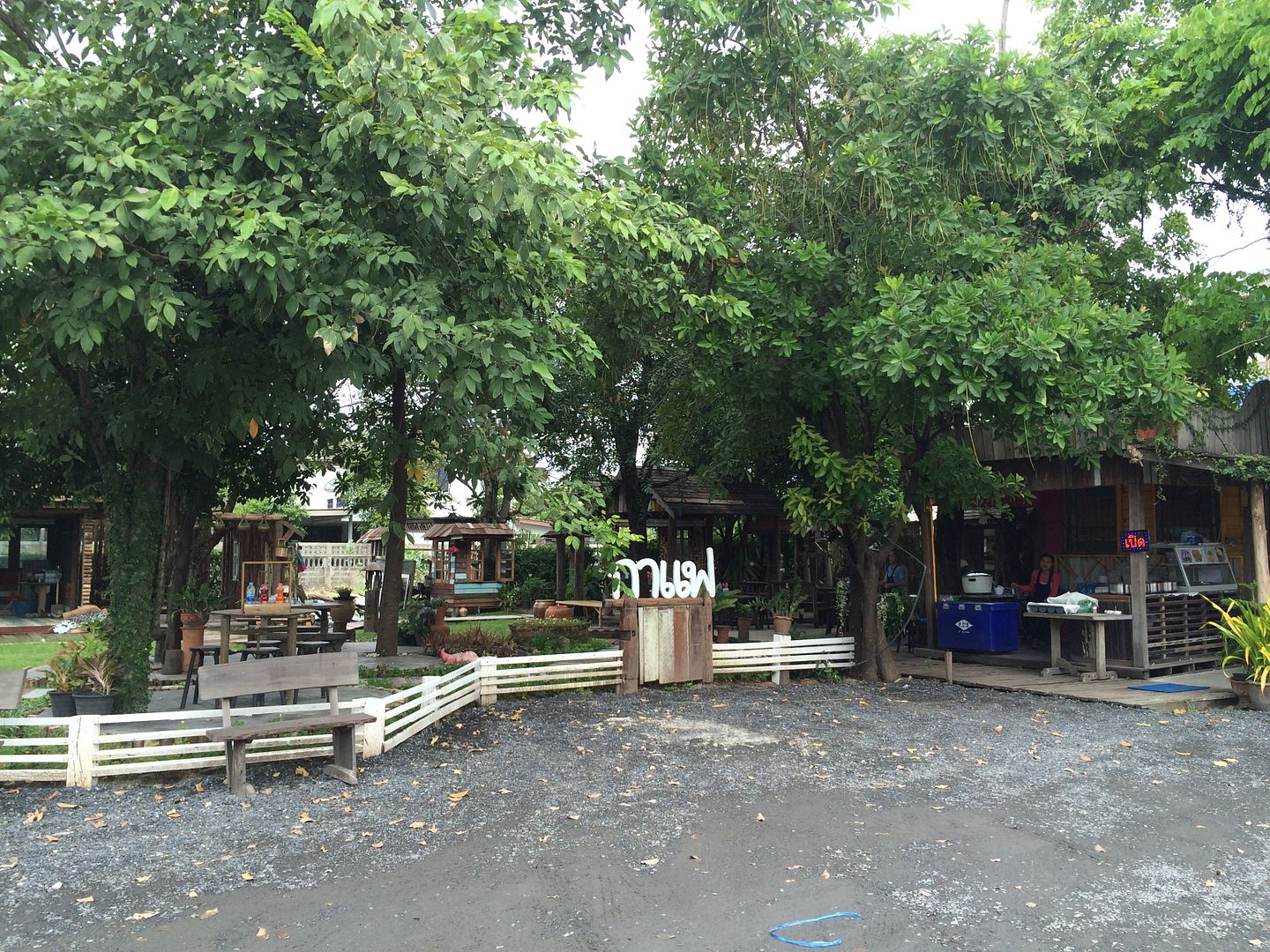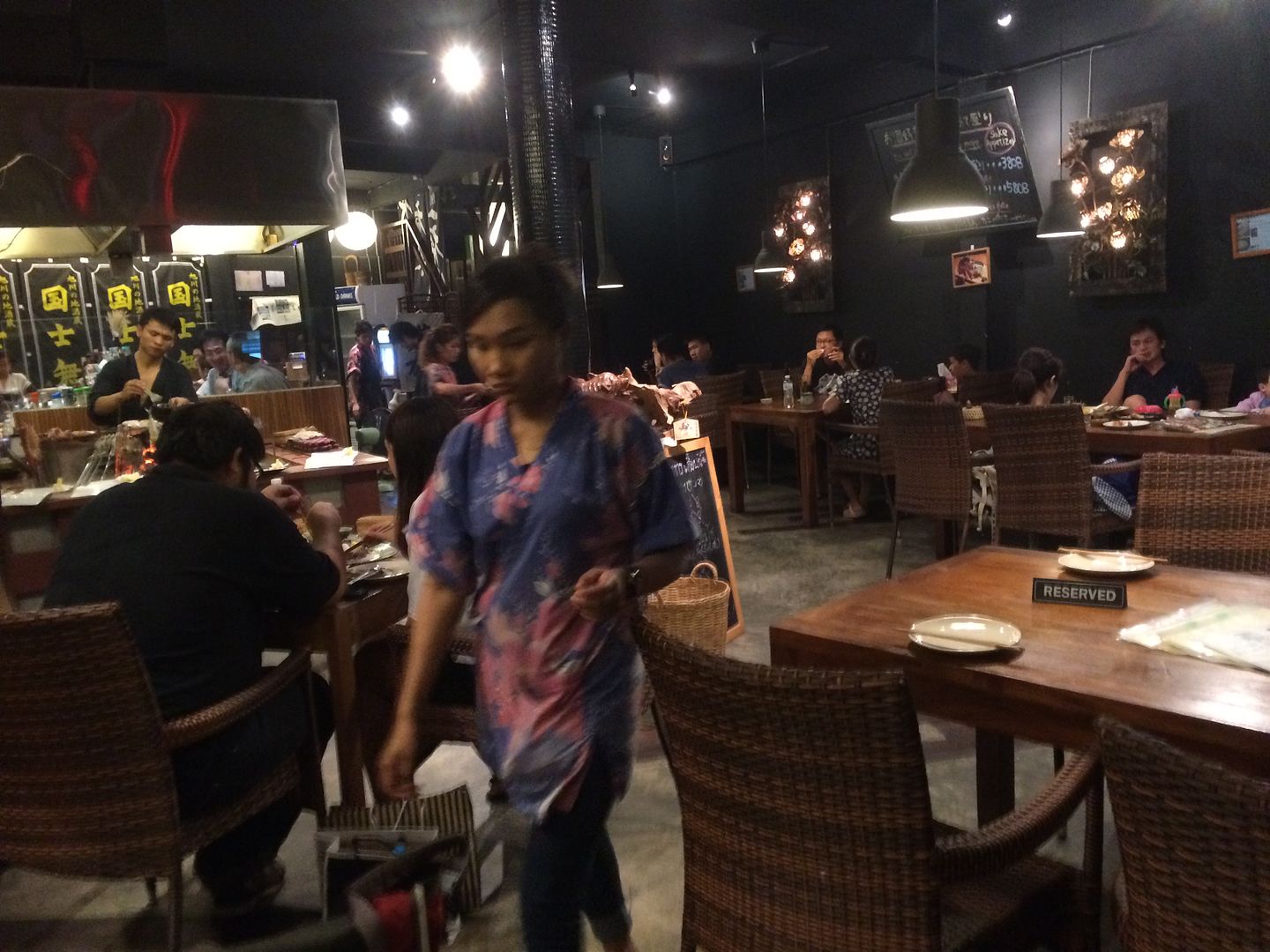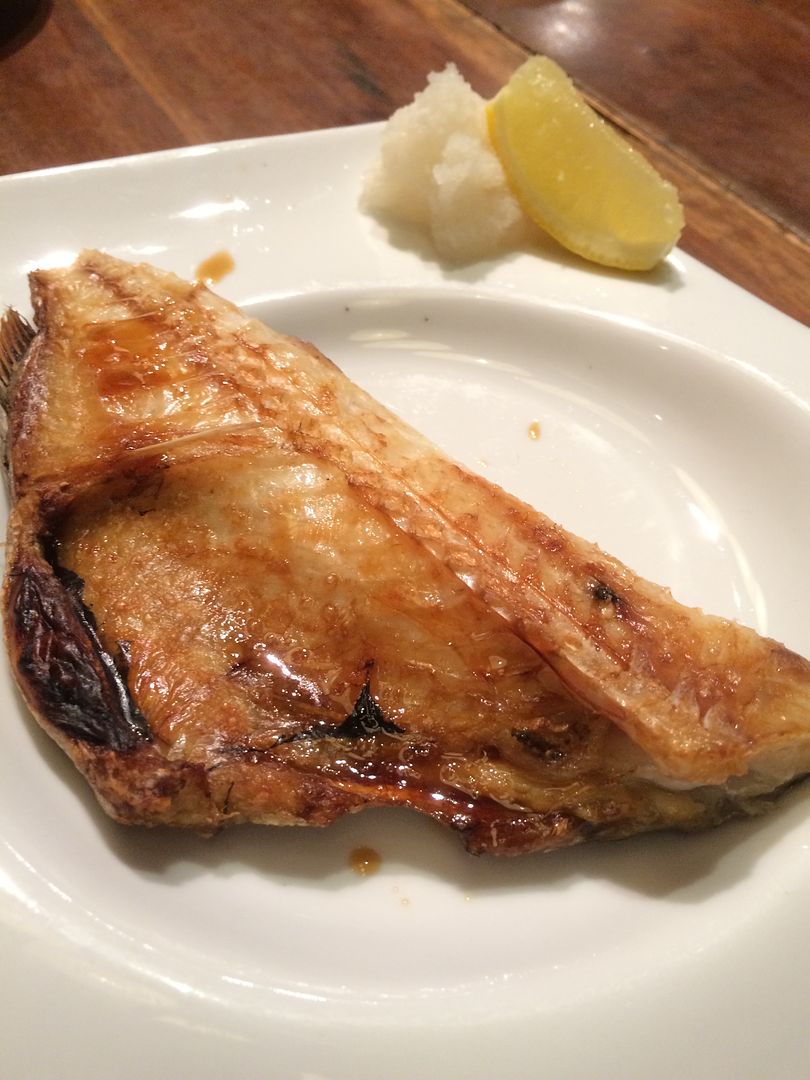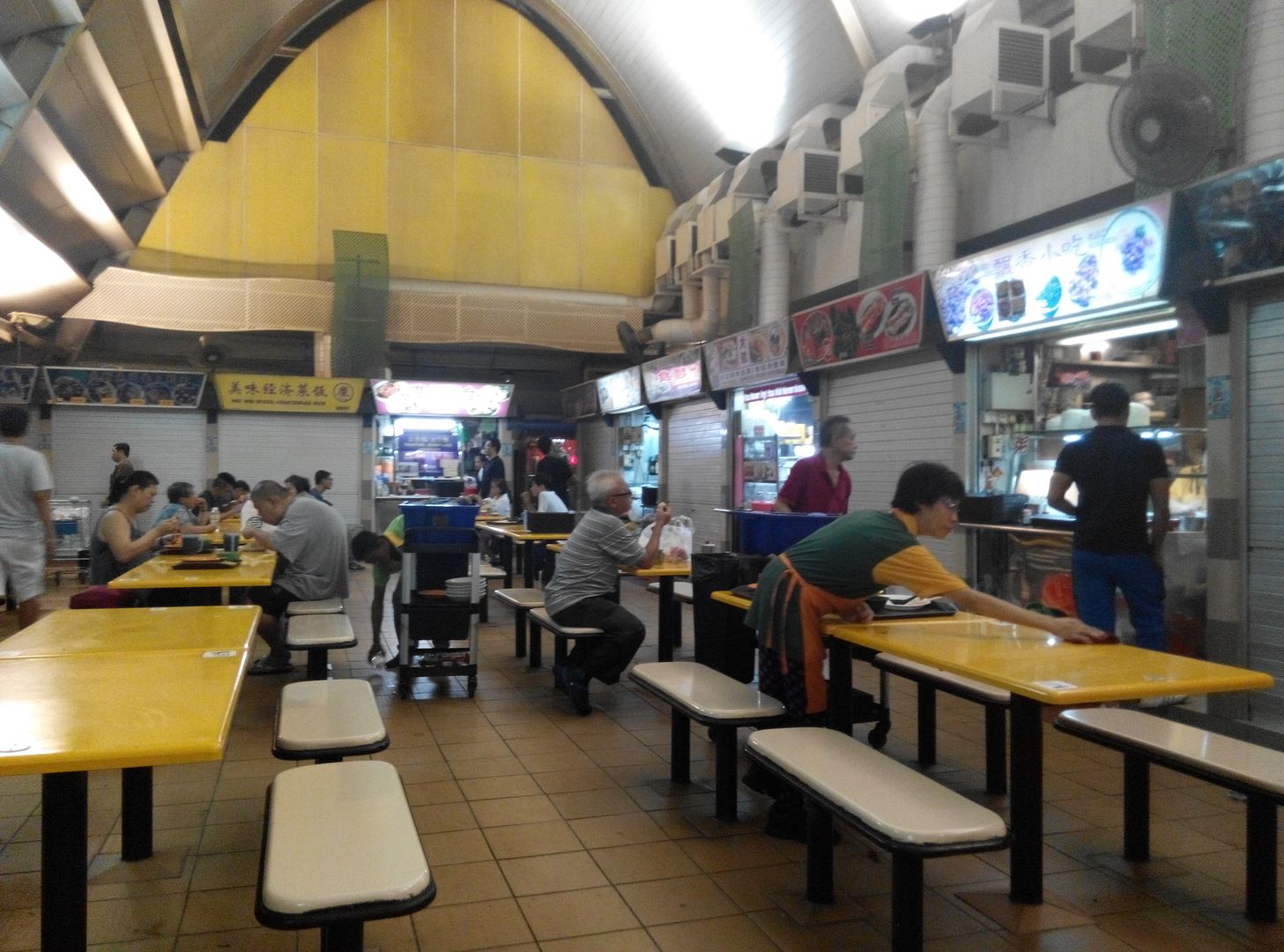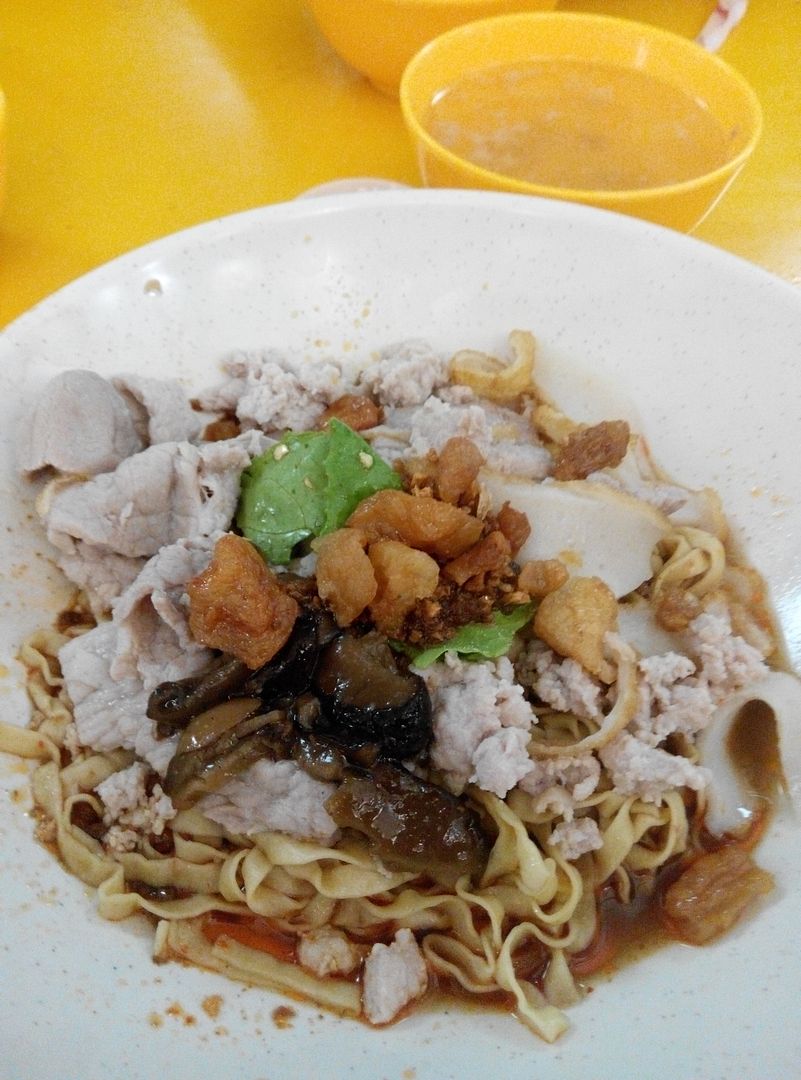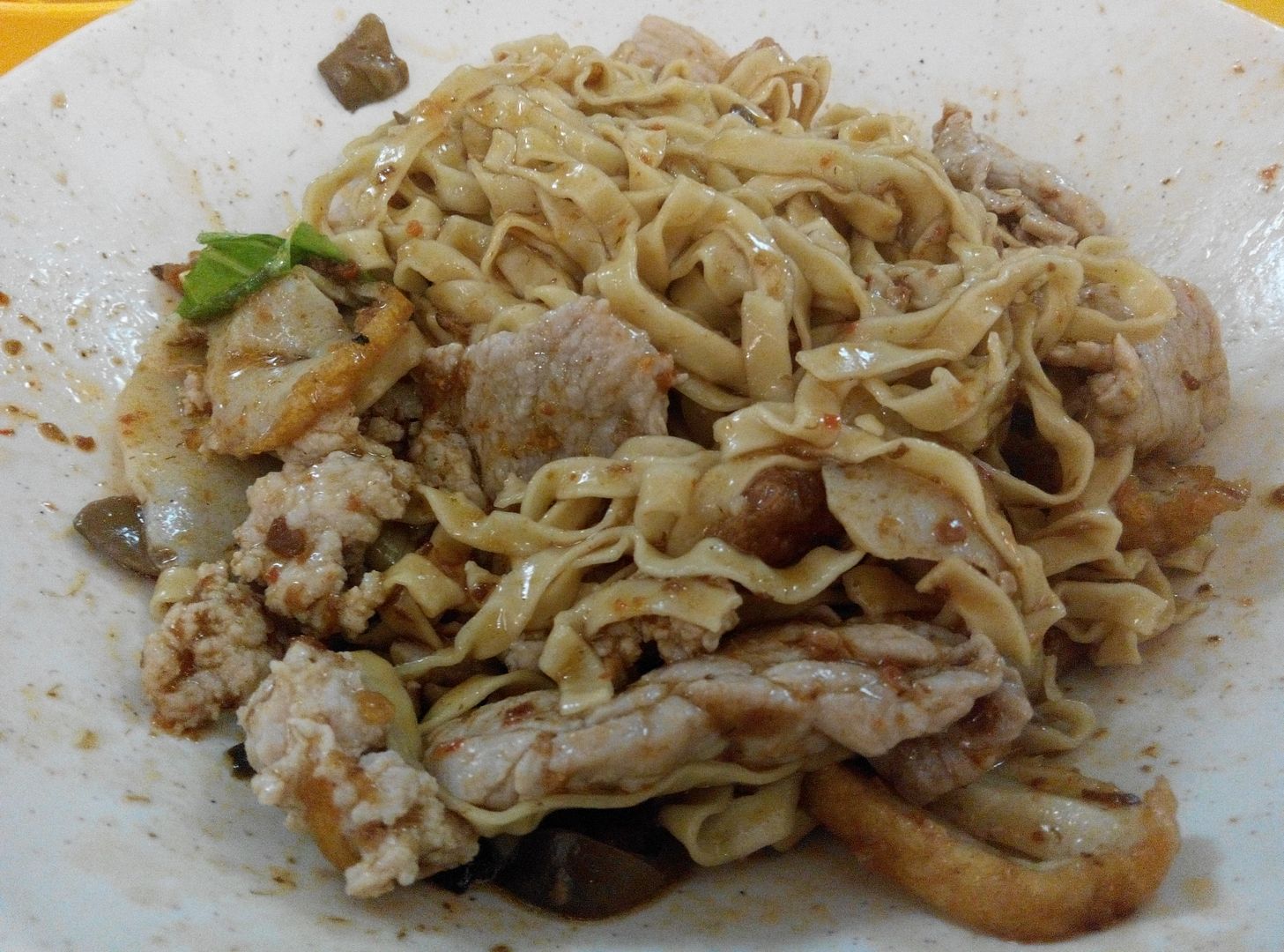-
IP addresses are NOT logged in this forum so there's no point asking. Please note that this forum is full of homophobes, racists, lunatics, schizophrenics & absolute nut jobs with a smattering of geniuses, Chinese chauvinists, Moderate Muslims and last but not least a couple of "know-it-alls" constantly sprouting their dubious wisdom. If you believe that content generated by unsavory characters might cause you offense PLEASE LEAVE NOW! Sammyboy Admin and Staff are not responsible for your hurt feelings should you choose to read any of the content here. The OTHER forum is HERE so please stop asking.
You are using an out of date browser. It may not display this or other websites correctly.
You should upgrade or use an alternative browser.
You should upgrade or use an alternative browser.
A Singaporean's guide to living in Thailand
- Thread starter Leongsam
- Start date
- Joined
- Jul 15, 2008
- Messages
- 22,121
- Points
- 113
Cab meters to run faster, into new year:p
Taxi and underground price rises in the pipeline
Published: 28/09/2014 at 06:00 AM
Bangkok Post Newspaper section: News
The fares on Bangkok's underground system will be frozen until the end of the year while a hike in taxi fares is expected in November, pending an energy price restructure.
A subway ride will cost more beginning on New Year's Day, although Transport Minister Gen Prajin Juntong says most fares will rise "only a baht or two". (Photo by Apichit Jinakul)
Transport Minister Prajin Juntong said Ronachit Yaemsaard, acting governor of the Mass Rapid Transit Authority (MRTA), convinced the management of Bangkok Metro Plc (BMCL) to freeze its fares until Dec 31. On Jan 1, fares will rise by one or two baht, the minister said.
ACM Prajin said under its contract, BMCL had the option to raise its fares on July 3, 2014, but the National Council for Peace and Order asked for a delay until the coming Thursday. The latest round of fare negotiations resulted in an agreement to postpone the next hike until next year.
A source at the MRTA said the delay of the fare hike would cost the underground railway operator about seven million baht per month, or 42 million baht for six months. However, the BMCL agreed to comply with the government's policy to ease people's cost of living in the short term.
The Transport Minister also confirmed that taxi fares would rise, but that would not happen until a study on the new energy price structure was completed. He expects to see the new energy price structure this week or next.
The flag fall of 35 baht will not change; the increase in cost for the length of each journey will be determined during the study.
ACM Prajin said that rising costs of living and energy justify a taxi fare rise. Without taking rising energy costs into account, and based only on rising living and operation costs, it would result in a fare increase of between 8% and 11%.
Taxi and underground price rises in the pipeline
Published: 28/09/2014 at 06:00 AM
Bangkok Post Newspaper section: News
The fares on Bangkok's underground system will be frozen until the end of the year while a hike in taxi fares is expected in November, pending an energy price restructure.
A subway ride will cost more beginning on New Year's Day, although Transport Minister Gen Prajin Juntong says most fares will rise "only a baht or two". (Photo by Apichit Jinakul)
Transport Minister Prajin Juntong said Ronachit Yaemsaard, acting governor of the Mass Rapid Transit Authority (MRTA), convinced the management of Bangkok Metro Plc (BMCL) to freeze its fares until Dec 31. On Jan 1, fares will rise by one or two baht, the minister said.
ACM Prajin said under its contract, BMCL had the option to raise its fares on July 3, 2014, but the National Council for Peace and Order asked for a delay until the coming Thursday. The latest round of fare negotiations resulted in an agreement to postpone the next hike until next year.
A source at the MRTA said the delay of the fare hike would cost the underground railway operator about seven million baht per month, or 42 million baht for six months. However, the BMCL agreed to comply with the government's policy to ease people's cost of living in the short term.
The Transport Minister also confirmed that taxi fares would rise, but that would not happen until a study on the new energy price structure was completed. He expects to see the new energy price structure this week or next.
The flag fall of 35 baht will not change; the increase in cost for the length of each journey will be determined during the study.
ACM Prajin said that rising costs of living and energy justify a taxi fare rise. Without taking rising energy costs into account, and based only on rising living and operation costs, it would result in a fare increase of between 8% and 11%.
- Joined
- Jul 15, 2008
- Messages
- 22,121
- Points
- 113
Craze over new gizmo Iphone 6, at thb100k?! 
Buyers have no hangups paying top dollar for iPhone 6
Bangkok Post Published: 28/09/2014 at 06:00 AM
Anxious Apple fans are paying double the overseas retail price for the new iPhone 6 on the grey market before the device's official release in Thailand.
For just 100,000 baht, you can own one of these, if you can find a grey-market operator who hasn't sold out of his supply yet.
When the first iPhone 6 Plus reached the MBK shopping centre two weeks ago, it was sold for more than 100,000 baht to a wealthy businessman. The high-end iPhone 6 Plus, with 128GB, is sold in the US for the equivalent of 40,000 baht.
"He [the businessman] told me that purchasing the phone at such a high price would outweigh the cost of not being able to work due to the anxiety," said Ball, the owner of a high-end smartphone accessories shop on the fourth floor of the MBK Centre. "And he didn't want just any colour — he wanted a black one."
Although Ball does not sell the device, he does stock 55 types of authentic iPhone 6 cases. He added that the businessman who paid 100,000 baht for the phone was a regular client. Ball says he always advises his customers to wait for the official launch because buying one now would be "a waste of money".
Two weeks ago, signs touting "We sell the iPhone 6" could be seen at the majority of mobile phone shops at MBK. The majority of grey market phones are smuggled into the country via Hong Kong and Singapore.
All the signs were taken down on Monday after customs officials seized about 300 smuggled iPhone 6 devices at Suvarnabhumi. But late last week, MBK retailers were still selling the devices to customers willing to pay a premium to get hold of Apple's newest smartphone model which the company expects to be released officially later this year.
"Although I would advise my close customers against buying these overpriced products, there is still a large demand for them in the Thai market," said 32-year-old Kittiwut Tangmongkollert, who opened his shop in MBK nine years ago.
Mr Kittiwut estimates that about 70% of the mobile phone sellers at MBK have iPhone 6s for sale.
When the Bangkok Post Sunday visited MBK last week, none of the shops openly advertised the sale of the iPhone 6. However, some resorted to other discreet tactics such as displaying white, black and gold casing on their shelves to attract customers.
Ranging from 45,000-48,000 baht for the 16GB model, the price is almost double the amount sold in the US, about 25,500 baht. During the first few days it was selling for as much as 65,000 baht on the grey market, retailers said.
Some shops also sell fake Chinese copies of the iPhone6 running an Android operating system for 4,800 baht. Mr Kittiwut said prices change on a daily basis depending on the difficulty in obtaining the devices from overseas and bringing them into Thailand.
"For instance, if there are 20 devices in a lot and half were seized, they would cover the losses by increasing the price on the remaining phones," he said.
Mobile phones sold in Thailand require an import licence issued by the National Broadcasting and Telecommunications Commission (NBTC). Customs officials have been ordered to survey shopping malls and online shops for illegal sales, while the ones already seized by customs officials will later be put up for auction.
The new iPhone 6s were launched in nine countries worldwide on Sept 19. Thailand was not included.
A source from one of Thailand's largest mobile operators told the Bangkok Post Sunday that he was informed by one of the company's executives that Apple made an agreement to sell the iPhone 6 in Thailand on Sept 19.
That changed when NBTC secretary-general Takorn Tantasith announced in August that the agency has approved Apple's application to distribute two models — identified only by number — and then, on Aug 12, tweeted the news.
"Apple considered that as leaking pre-launch information," said the source, who asked not to be identified because he was not authorised to speak publicly.

Buyers have no hangups paying top dollar for iPhone 6
Bangkok Post Published: 28/09/2014 at 06:00 AM
Anxious Apple fans are paying double the overseas retail price for the new iPhone 6 on the grey market before the device's official release in Thailand.
For just 100,000 baht, you can own one of these, if you can find a grey-market operator who hasn't sold out of his supply yet.
When the first iPhone 6 Plus reached the MBK shopping centre two weeks ago, it was sold for more than 100,000 baht to a wealthy businessman. The high-end iPhone 6 Plus, with 128GB, is sold in the US for the equivalent of 40,000 baht.
"He [the businessman] told me that purchasing the phone at such a high price would outweigh the cost of not being able to work due to the anxiety," said Ball, the owner of a high-end smartphone accessories shop on the fourth floor of the MBK Centre. "And he didn't want just any colour — he wanted a black one."
Although Ball does not sell the device, he does stock 55 types of authentic iPhone 6 cases. He added that the businessman who paid 100,000 baht for the phone was a regular client. Ball says he always advises his customers to wait for the official launch because buying one now would be "a waste of money".
Two weeks ago, signs touting "We sell the iPhone 6" could be seen at the majority of mobile phone shops at MBK. The majority of grey market phones are smuggled into the country via Hong Kong and Singapore.
All the signs were taken down on Monday after customs officials seized about 300 smuggled iPhone 6 devices at Suvarnabhumi. But late last week, MBK retailers were still selling the devices to customers willing to pay a premium to get hold of Apple's newest smartphone model which the company expects to be released officially later this year.
"Although I would advise my close customers against buying these overpriced products, there is still a large demand for them in the Thai market," said 32-year-old Kittiwut Tangmongkollert, who opened his shop in MBK nine years ago.
Mr Kittiwut estimates that about 70% of the mobile phone sellers at MBK have iPhone 6s for sale.
When the Bangkok Post Sunday visited MBK last week, none of the shops openly advertised the sale of the iPhone 6. However, some resorted to other discreet tactics such as displaying white, black and gold casing on their shelves to attract customers.
Ranging from 45,000-48,000 baht for the 16GB model, the price is almost double the amount sold in the US, about 25,500 baht. During the first few days it was selling for as much as 65,000 baht on the grey market, retailers said.
Some shops also sell fake Chinese copies of the iPhone6 running an Android operating system for 4,800 baht. Mr Kittiwut said prices change on a daily basis depending on the difficulty in obtaining the devices from overseas and bringing them into Thailand.
"For instance, if there are 20 devices in a lot and half were seized, they would cover the losses by increasing the price on the remaining phones," he said.
Mobile phones sold in Thailand require an import licence issued by the National Broadcasting and Telecommunications Commission (NBTC). Customs officials have been ordered to survey shopping malls and online shops for illegal sales, while the ones already seized by customs officials will later be put up for auction.
The new iPhone 6s were launched in nine countries worldwide on Sept 19. Thailand was not included.
A source from one of Thailand's largest mobile operators told the Bangkok Post Sunday that he was informed by one of the company's executives that Apple made an agreement to sell the iPhone 6 in Thailand on Sept 19.
That changed when NBTC secretary-general Takorn Tantasith announced in August that the agency has approved Apple's application to distribute two models — identified only by number — and then, on Aug 12, tweeted the news.
"Apple considered that as leaking pre-launch information," said the source, who asked not to be identified because he was not authorised to speak publicly.
- Joined
- Jul 15, 2008
- Messages
- 22,121
- Points
- 113
New gizmo now to be launched in Thailand :p
Thailand may get iPhone 6 Oct 24
Bangkok Post Published: 30/09/2014 at 06:45 PM
Thailand will get its chance to buy the iPhone 6 at regular prices Oct 24 when Apple Corp officially brings its latest two devices to retailers and mobile-phone operators in the kingdom, an industry source said Tuesday.
Currently only available via grey-market resellers at exorbitant prices, the iPhone 6 and iPhone 6 Plus will go on sale on Apple's online store, mobile operators and distributors at prices ranging from 25,500 baht to 37,300 baht, according to a source at a major Thai information-technology distributor. Apple itself has not confirmed the release date.
The 4.7-inch iPhone 6 will sell for 25,500 baht for a version with 16 gigabytes of storage memory. The 64 GB model will sell for 29,400 baht and the 128 GB version for 33,400 baht, the source said.
The 5.5-inch iPhone 6 Plus "phablet" will start at 29,400 baht for the 16 GB version, 33,400 baht for the 64 GB model and 37,300 baht for the top-of-the-line 128 GB iPhone 6 Plus.
The IT distributor acknowledged - but could not explain why - prices supplied to him were higher than what the iPhone models sell for in the US, based on current exchange rates. The quoted retail prices for the iPhone 6 are also higher than historically charged for iPhone 4S and iPhone 5S models with the same amount of storage.
Another industry source said this week that Thailand could have been among the countries to receive the iPhone 6 the first day it launched, Sept 19, worldwide. But he said public comments by an official at the National Broadcasting and Telecommunications Commission confirming the existence of the iPhone 6 a month before its launch dashed those chances.
NBTC secretary-general Takorn Tantasith announced that the NBTC had approved Apple's application to distribute two models - identified only by number - and then, on Aug 12, tweeted the news. Apple, notoriously secretive about unannounced products, demanded an immediate meeting with Mr Takorn and, according to the Thai industry source, booted Thailand down the launch list.
Thirty-one other markets will have received the latest iPhones before Thailand if it indeed does launch here on Oct 24. China gets the devices on Oct 17.
The IT industry source suggested Apple may not have retaliated against the NBTC, however. He said the delay could be caused by the extremely constrained supplies of the iPhone 6 Plus, which have sold out in nearly every market. Apple reportedly is having trouble meeting manufacturing goals for the handset, which has been more popular than the 4.7-inch model.
Thailand may get iPhone 6 Oct 24
Bangkok Post Published: 30/09/2014 at 06:45 PM
Thailand will get its chance to buy the iPhone 6 at regular prices Oct 24 when Apple Corp officially brings its latest two devices to retailers and mobile-phone operators in the kingdom, an industry source said Tuesday.
Currently only available via grey-market resellers at exorbitant prices, the iPhone 6 and iPhone 6 Plus will go on sale on Apple's online store, mobile operators and distributors at prices ranging from 25,500 baht to 37,300 baht, according to a source at a major Thai information-technology distributor. Apple itself has not confirmed the release date.
The 4.7-inch iPhone 6 will sell for 25,500 baht for a version with 16 gigabytes of storage memory. The 64 GB model will sell for 29,400 baht and the 128 GB version for 33,400 baht, the source said.
The 5.5-inch iPhone 6 Plus "phablet" will start at 29,400 baht for the 16 GB version, 33,400 baht for the 64 GB model and 37,300 baht for the top-of-the-line 128 GB iPhone 6 Plus.
The IT distributor acknowledged - but could not explain why - prices supplied to him were higher than what the iPhone models sell for in the US, based on current exchange rates. The quoted retail prices for the iPhone 6 are also higher than historically charged for iPhone 4S and iPhone 5S models with the same amount of storage.
Another industry source said this week that Thailand could have been among the countries to receive the iPhone 6 the first day it launched, Sept 19, worldwide. But he said public comments by an official at the National Broadcasting and Telecommunications Commission confirming the existence of the iPhone 6 a month before its launch dashed those chances.
NBTC secretary-general Takorn Tantasith announced that the NBTC had approved Apple's application to distribute two models - identified only by number - and then, on Aug 12, tweeted the news. Apple, notoriously secretive about unannounced products, demanded an immediate meeting with Mr Takorn and, according to the Thai industry source, booted Thailand down the launch list.
Thirty-one other markets will have received the latest iPhones before Thailand if it indeed does launch here on Oct 24. China gets the devices on Oct 17.
The IT industry source suggested Apple may not have retaliated against the NBTC, however. He said the delay could be caused by the extremely constrained supplies of the iPhone 6 Plus, which have sold out in nearly every market. Apple reportedly is having trouble meeting manufacturing goals for the handset, which has been more popular than the 4.7-inch model.
- Joined
- Jul 15, 2008
- Messages
- 22,121
- Points
- 113
Tourism minister mulls wristbands, curfews for tourists
Tourism minister suggests tourists be tracked, limited in party hours
Bangkok POst Published: 30/09/2014 at 02:30 PM
Thailand's tourism minister said Tuesday that identification wristbands could be distributed to tourists following the murder of two British backpackers earlier this month that has raised fresh concerns over tourist safety.
Tourism and Sports Minister Kobkarn Wattanavrangkul said she had approached hotels over the idea of handing out wristbands to help identify tourists that get lost or into trouble.
Tourists carry their luggage on a pier in Chumphon province on their way to the boat heading to the island of Koh Tao. Thailand's tourism minister said Tuesday that identification wristbands would be distributed to tourists nationwide when they check into hotels following the murder of two British backpackers on the island.
"When tourists check-in to a hotel they will be given a wristband with a serial number that matches their ID and shows the contact details of the resort they are staying in so that if they're out partying late and, for example, get drunk or lost, they can be easily assisted," Ms Kobkarn told Reuters.
"The next step would be some sort of electronic tracking device, but this has not yet been discussed in detail."
She added that a "buddy system" - pairing tourists with a local minder at tourist destinations - was also being discussed.
The bodies of Hannah Witheridge, 23, and David Miller, 24, were found on a beach on the southern island of Koh Tao Sept. 15. Post-mortem examinations by Thailand's forensics department showed Witheridge died from severe head wounds and Miller died from drowning and blows to the head. Almost three weeks after the murder police are no closer to an arrest as frustration mounts over the lack of a breakthrough.
Ms Kobkarn admitted the wristband idea has already met with some resistance. "Most people welcome the idea but some hotels are concerned that tourists may not want to wear the wristbands."
Limiting party hours on some of Thailand's islands and imposing restrictions over where beach parties can be held were also being considered, said Kobkarn. The idea is unlikely to go down well with hoards of young backpackers who travel to Thailand each year in search of sun, sea and a good time.
Authorities have expressed concern over the murders' impact on tourism, which accounts for nearly 10% of GDP.
Thailand is still under martial law after a May 22 coup, something that has made many tourists think twice about traveling to the country.
The industry has yet to recover from a slump in visitors due to months of sometimes-violent street protests that left nearly 30 people dead. Tourists arriving in Thailand fell 11.9% in August from a year earlier after a 10.9% drop in July.
Tourism minister suggests tourists be tracked, limited in party hours
Bangkok POst Published: 30/09/2014 at 02:30 PM
Thailand's tourism minister said Tuesday that identification wristbands could be distributed to tourists following the murder of two British backpackers earlier this month that has raised fresh concerns over tourist safety.
Tourism and Sports Minister Kobkarn Wattanavrangkul said she had approached hotels over the idea of handing out wristbands to help identify tourists that get lost or into trouble.
Tourists carry their luggage on a pier in Chumphon province on their way to the boat heading to the island of Koh Tao. Thailand's tourism minister said Tuesday that identification wristbands would be distributed to tourists nationwide when they check into hotels following the murder of two British backpackers on the island.
"When tourists check-in to a hotel they will be given a wristband with a serial number that matches their ID and shows the contact details of the resort they are staying in so that if they're out partying late and, for example, get drunk or lost, they can be easily assisted," Ms Kobkarn told Reuters.
"The next step would be some sort of electronic tracking device, but this has not yet been discussed in detail."
She added that a "buddy system" - pairing tourists with a local minder at tourist destinations - was also being discussed.
The bodies of Hannah Witheridge, 23, and David Miller, 24, were found on a beach on the southern island of Koh Tao Sept. 15. Post-mortem examinations by Thailand's forensics department showed Witheridge died from severe head wounds and Miller died from drowning and blows to the head. Almost three weeks after the murder police are no closer to an arrest as frustration mounts over the lack of a breakthrough.
Ms Kobkarn admitted the wristband idea has already met with some resistance. "Most people welcome the idea but some hotels are concerned that tourists may not want to wear the wristbands."
Limiting party hours on some of Thailand's islands and imposing restrictions over where beach parties can be held were also being considered, said Kobkarn. The idea is unlikely to go down well with hoards of young backpackers who travel to Thailand each year in search of sun, sea and a good time.
Authorities have expressed concern over the murders' impact on tourism, which accounts for nearly 10% of GDP.
Thailand is still under martial law after a May 22 coup, something that has made many tourists think twice about traveling to the country.
The industry has yet to recover from a slump in visitors due to months of sometimes-violent street protests that left nearly 30 people dead. Tourists arriving in Thailand fell 11.9% in August from a year earlier after a 10.9% drop in July.
- Joined
- Jul 15, 2008
- Messages
- 22,121
- Points
- 113
Bonus for traffic cops who reject bribes
Bangkok Post Published: 6/10/2014 at 04:23 PM
The Metropolitan Police Bureau (MPB) on Monday announced plans to reward traffic police officers with a 10,000 baht bonus if they arrest a motorist who tries to bribe them.
A traffic policeman directs tuk tuks and taxis at MBK shopping complex to park in another area, during a crackdown on June 23. (file photo by Seksan Rojanamethakul)
MPB deputy chief Pol Maj Gen Adul Narongsak, who oversees traffic affairs, announced the planned reward when he was outlining the city’s traffic policies for 2015 to senior traffic police officers.
The policy fosters integrity awareness and polite service by traffic law enforcers. The MPB would take both decisive disciplinary and legal action against corrupt officers, he said.
“Any traffic police officer who can arrest a motorist who offers a bribe will receive a 10,000 baht reward. The money will come from the traffic police welfare fund,” Pol Maj Gen Adul said.
Other measures included elevating traffic management standards with wider use of technology, continued strict law enforcement and a systematic review and planning to help reduce road accidents.
Police would continue to their campaign against five main traffic offences -- stopping beyond crossing lines, driving in the wrong direction, overtaking cars in prohibited areas, blocking intersection and using fake licence plates.
The MPB would also open an integrated operations centre for traffic accidents on Oct 16, he added.
Bangkok Post Published: 6/10/2014 at 04:23 PM
The Metropolitan Police Bureau (MPB) on Monday announced plans to reward traffic police officers with a 10,000 baht bonus if they arrest a motorist who tries to bribe them.
A traffic policeman directs tuk tuks and taxis at MBK shopping complex to park in another area, during a crackdown on June 23. (file photo by Seksan Rojanamethakul)
MPB deputy chief Pol Maj Gen Adul Narongsak, who oversees traffic affairs, announced the planned reward when he was outlining the city’s traffic policies for 2015 to senior traffic police officers.
The policy fosters integrity awareness and polite service by traffic law enforcers. The MPB would take both decisive disciplinary and legal action against corrupt officers, he said.
“Any traffic police officer who can arrest a motorist who offers a bribe will receive a 10,000 baht reward. The money will come from the traffic police welfare fund,” Pol Maj Gen Adul said.
Other measures included elevating traffic management standards with wider use of technology, continued strict law enforcement and a systematic review and planning to help reduce road accidents.
Police would continue to their campaign against five main traffic offences -- stopping beyond crossing lines, driving in the wrong direction, overtaking cars in prohibited areas, blocking intersection and using fake licence plates.
The MPB would also open an integrated operations centre for traffic accidents on Oct 16, he added.
Last edited:
- Joined
- Jul 15, 2008
- Messages
- 22,121
- Points
- 113
Source of (ill-gotten?) wealth by new assembly men.
Military moves up, from bottles to banknotes
Bangkok Post Published: 7/10/2014 at 02:22 PM
The public disclosure of the assets and liabilities of members of the National Legislative Assembly by the National Anti-Corruption Commission, especially the wealth of several police and military generals, is indeed an eye-opener.
Quite a few of us may feel envious of the wealth these government servants have accrued, and would like a few tips on just how they did it, how they managed their salaries to the extent that their worth multiplied so many times.
One thing that is going to change, for sure, is the perception regarding high-ranking military officers as set down in an old Thai saying, "Wives of military officers count bottles (whisky bottles); wives of police officers count banknotes".
It seems this old adage is no longer relevant, as the wives of military officers, particularly those in the NLA, no longer count bottles but banknotes -- like their peers in the police force.
Here are some examples of the wealth of the NLA members in uniform: defence permanent secretary General Sirichai Ditakul has assets worth 108 million baht; deputy national police chief Pol Gen Jaktip Chaijinda has 97.4 million baht while his wife is worth 870.9 million baht; Gen Chayut Suwanmas, a former army special resource officer, is worth 544 million baht; General Nipat Thonglek, former defence permanent secretary has 122 million baht; Gen Preecha Chan-o-cha, assistant army commander-in-chief is worth 122 million baht. The list goes on and, I reckon, your envy grows along with it. (More disclosures in graphic below)
Thai Rath columnist Mae Look Chan said in his commentary on Monday that these wealthy officers might have amassed their wealth from other sources besides their basic salaries from the state - possibly through family inheritance, profits from stock market speculation, or they might have very rich wives. Well, you may agree or disagree with Mae Look Chan, as you wish.
Looking at myself and my colleagues in the media profession, I can’t help feeling sorry I made such a bad decision in choosing to study law and, instead of enrolling at one of the military academies, spending the rest of my life as a journalist unable to amass even a small fraction of these NLA members’ wealth. What a waste.
I wonder whether any of those parents obsessed with the idea of their children getting into medical school or into law school, so as doctors or lawyers they can make a lot of money, will now change their minds and wonder if sending them to a military academy might be a better choice?
NACC secretary-general Sansern Poljiak urged people who have any information pointing to these wealthy NLA members having ill-gotten gains to come forward and share it with the NACC. But how many people would dare to put their life at such risk?
The constitutional requirement for legislators and cabinet members to declare their assets without making public information on the source of their wealth is pointless, just a formality rather than any real attempt to tackle the scourge of corruption in the government service.
There are countless examples of young MPs who had no real wealth when they first entered politics suddenly being multi-millionaires a few years later after their party was in government. Declaration of assets and liabilities is not sufficient in itself. The law must make it mandatory for these public servants to also explain how and where they acquired their wealth.
That may well cause many people to think twice before deciding to enter politics, for fear that their wealth will be subjected to public scrutiny. The merits of transparency will clearly outweigh the demerits.
These 28 members of the NLA only reluctantly revealed their wealth after the Central Administrative Court rejected their claim they were not politicians and did have to declare their assets and liabilities. They turned out to have net worth ranging from 5 million to 838 million baht. (Bangkok Post graphic)
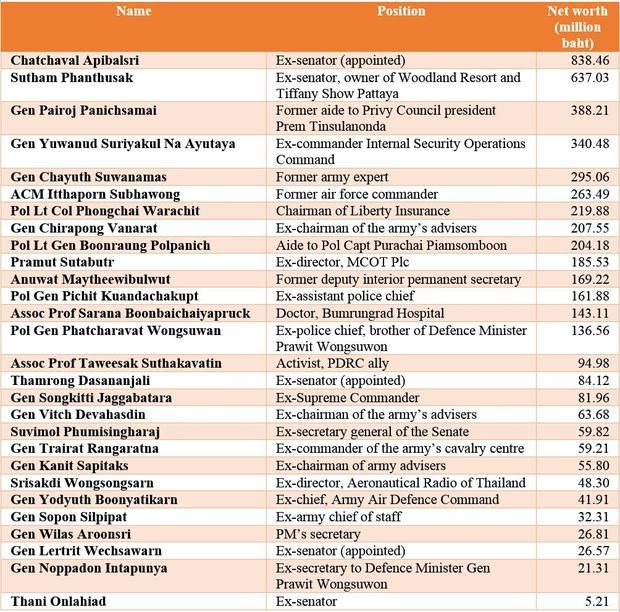
Military moves up, from bottles to banknotes
Bangkok Post Published: 7/10/2014 at 02:22 PM
The public disclosure of the assets and liabilities of members of the National Legislative Assembly by the National Anti-Corruption Commission, especially the wealth of several police and military generals, is indeed an eye-opener.
Quite a few of us may feel envious of the wealth these government servants have accrued, and would like a few tips on just how they did it, how they managed their salaries to the extent that their worth multiplied so many times.
One thing that is going to change, for sure, is the perception regarding high-ranking military officers as set down in an old Thai saying, "Wives of military officers count bottles (whisky bottles); wives of police officers count banknotes".
It seems this old adage is no longer relevant, as the wives of military officers, particularly those in the NLA, no longer count bottles but banknotes -- like their peers in the police force.
Here are some examples of the wealth of the NLA members in uniform: defence permanent secretary General Sirichai Ditakul has assets worth 108 million baht; deputy national police chief Pol Gen Jaktip Chaijinda has 97.4 million baht while his wife is worth 870.9 million baht; Gen Chayut Suwanmas, a former army special resource officer, is worth 544 million baht; General Nipat Thonglek, former defence permanent secretary has 122 million baht; Gen Preecha Chan-o-cha, assistant army commander-in-chief is worth 122 million baht. The list goes on and, I reckon, your envy grows along with it. (More disclosures in graphic below)
Thai Rath columnist Mae Look Chan said in his commentary on Monday that these wealthy officers might have amassed their wealth from other sources besides their basic salaries from the state - possibly through family inheritance, profits from stock market speculation, or they might have very rich wives. Well, you may agree or disagree with Mae Look Chan, as you wish.
Looking at myself and my colleagues in the media profession, I can’t help feeling sorry I made such a bad decision in choosing to study law and, instead of enrolling at one of the military academies, spending the rest of my life as a journalist unable to amass even a small fraction of these NLA members’ wealth. What a waste.
I wonder whether any of those parents obsessed with the idea of their children getting into medical school or into law school, so as doctors or lawyers they can make a lot of money, will now change their minds and wonder if sending them to a military academy might be a better choice?
NACC secretary-general Sansern Poljiak urged people who have any information pointing to these wealthy NLA members having ill-gotten gains to come forward and share it with the NACC. But how many people would dare to put their life at such risk?
The constitutional requirement for legislators and cabinet members to declare their assets without making public information on the source of their wealth is pointless, just a formality rather than any real attempt to tackle the scourge of corruption in the government service.
There are countless examples of young MPs who had no real wealth when they first entered politics suddenly being multi-millionaires a few years later after their party was in government. Declaration of assets and liabilities is not sufficient in itself. The law must make it mandatory for these public servants to also explain how and where they acquired their wealth.
That may well cause many people to think twice before deciding to enter politics, for fear that their wealth will be subjected to public scrutiny. The merits of transparency will clearly outweigh the demerits.
These 28 members of the NLA only reluctantly revealed their wealth after the Central Administrative Court rejected their claim they were not politicians and did have to declare their assets and liabilities. They turned out to have net worth ranging from 5 million to 838 million baht. (Bangkok Post graphic)

Last edited:
- Joined
- Aug 11, 2009
- Messages
- 486
- Points
- 28
I in Pattaya till end of the week if you to Come find ahbeng and me. Took grab taxi for 100b instead of 250. Very happy. Pm me
- Joined
- Aug 8, 2008
- Messages
- 28,991
- Points
- 113
I in Pattaya till end of the week if you to Come find ahbeng and me. Took grab taxi for 100b instead of 250. Very happy. Pm me
Oh crap. No can do. Just left Bkk yesterday for my Jkt and SG round this week. Back to Blk on Sat for overnight and off to my HKG and SHA tour of duty the following week. Will take a break at Patts that weekend.
- Joined
- Aug 8, 2008
- Messages
- 28,991
- Points
- 113
I in Pattaya till end of the week if you to Come find ahbeng and me. Took grab taxi for 100b instead of 250. Very happy. Pm me
Oh crap. No can do. Just left Bkk yesterday for my Jkt and SG round this week. Back to Blk on Sat for overnight and off to my HKG and SHA tour of duty the following week. Will take a break at Patts that weekend.
- Joined
- Jul 15, 2008
- Messages
- 22,121
- Points
- 113
A (cryptic) slice of political thai mango. Thought this was quite a dig at helplessness of some ordinary blokes caught up with the law in troubled south.
COMMENTARY
When the law goes astray, all hope is lost
Bangkok Post Published: 11/10/2014 at 06:00 AM
In the post-coup happy hours, at times a man lost the ground beneath his feet. With the old constitution ripped and torn, the man became an entity without sanctity. He could be a ghost, a sitting duck, or on his worst days, a punching bag in a barracks full of bravery. He couldn't be protected, because the law that should've protected him had been flushed down the toilet and thus his rights — the natural rights we were all born with and once guaranteed by the constitution — suddenly went up in flames.
There was a ruling at the Pattani Court on Wednesday. The case was under-reported, no surprise, but its nature speaks volumes about the hypocrisy of our times and the interminable mess of the deep South (don't tell me you've forgotten it).
The man in question is called Hasan. In April, he was taken in by soldiers to the "interrogation centre" in a Pattani barracks, because of his alleged involvement with "the troublemakers" in the southernmost provinces. People often get taken in without making it to the news. What usually happens in "the centre" is anyone's guess.
However, Mr Hasan's sister, Royiah, visited her brother and believed that he was physically abused in detention. With a lawyer's help, she brought the matter to court, citing Section 32 of the 2007 Constitution that forbade "torture, brutal act, or punishment by cruel or inhumane means". She filed a complaint demanding a show of responsibility from the soldiers, as well as redress. Mr Hasan was released without being charged in May — so he's innocent — and his sister's demand was pending.
Earlier this week the Pattani Court dismissed Mr Hasan's case. The reasoning raised many eyebrows: Since the 2007 Constitution was annulled after the coup, the court said, the case had no legal basis. Meaning: Mr Hasan might have been mistreated, but no authorities would look into the matter because the law that protected his rights wasn't there. No investigation, no redress, no healing, no one has to be responsible.
Wait a minute, does that mean "torture, brutal act, or punishment by cruel or inhumane means", as the now-no-more charter prohibited, was somehow permitted after the law was ripped to pieces? I wonder even with the interim charter which gushed forth from the super-womb of the coup-makers, if we can at least ensure Mr Hasan (and us) the basic rights of physical safety. Or maybe it's just because he and his sister have Malay-sounding names, which is enough to make the whole thing different.
I phoned Mr Hasan's lawyer, Adilan Ali Ishak, who works with the Muslim Attorney Centre Foundation. "I understand the court's judgement, but I ask you all to understand the people's concern in this matter too," Mr Adilan spoke from Yala.
"There have been other cases of citizens allegedly being mistreated while in custody, and in a few cases the soldiers were judged to be in the wrong. Mr Hasan's case was the first that we cited Section 32 of the 2007 Constitution that guarantees our basic rights and freedom. What we asked is for someone to show responsibility, to say sorry and to offer a proper healing to him and his family."
Even though the old constitution went up in smoke after May 22, Mr Adilan believes Section 4 of the latest charter written after the coup still guarantees a person's basic rights. Ms Royiah and Mr Hasan plan to appeal. "This is an important case because [the way it turned out] adds to the sense of being oppressed, of justice not being served," the lawyer said. "They're pushing people to the other side."
That the story went nearly unreported is surprising but not new. Surprising because, as the lawyer said, it points to a technical loophole in our confusing, anything-goes multiple standards about whether the 2007 charter still has any juice left — does it mean other cases of physical abuse taking place after May 22 should be rejected too? Just as it's confusing whether Yingluck Shinawatra can be impeached after the constitution was abolished; in that high-profile case, it seems the old charter isn't totally useless after all.
The technicalities of the law, however, aren't as perturbing as the atmosphere of silence and suppression. That's why Mr Hasan's case — as well as other cases that didn't put the authorities in a positive light — goes under the public radar. It's not wise to criticise men in uniform these days. But two weeks from now, some people might find it compelling to do so. Oct 25 is the 10th anniversary of the Tak Bai incident in which no officials have been found responsible for the deaths of those men.
The deep South is deeply troubled, there are bad men down there who kill people, but what has happened only confirms what Mr Adilan said: Without justice, you're pushing people to the other side.
That's frightening.
COMMENTARY
When the law goes astray, all hope is lost
Bangkok Post Published: 11/10/2014 at 06:00 AM
In the post-coup happy hours, at times a man lost the ground beneath his feet. With the old constitution ripped and torn, the man became an entity without sanctity. He could be a ghost, a sitting duck, or on his worst days, a punching bag in a barracks full of bravery. He couldn't be protected, because the law that should've protected him had been flushed down the toilet and thus his rights — the natural rights we were all born with and once guaranteed by the constitution — suddenly went up in flames.
There was a ruling at the Pattani Court on Wednesday. The case was under-reported, no surprise, but its nature speaks volumes about the hypocrisy of our times and the interminable mess of the deep South (don't tell me you've forgotten it).
The man in question is called Hasan. In April, he was taken in by soldiers to the "interrogation centre" in a Pattani barracks, because of his alleged involvement with "the troublemakers" in the southernmost provinces. People often get taken in without making it to the news. What usually happens in "the centre" is anyone's guess.
However, Mr Hasan's sister, Royiah, visited her brother and believed that he was physically abused in detention. With a lawyer's help, she brought the matter to court, citing Section 32 of the 2007 Constitution that forbade "torture, brutal act, or punishment by cruel or inhumane means". She filed a complaint demanding a show of responsibility from the soldiers, as well as redress. Mr Hasan was released without being charged in May — so he's innocent — and his sister's demand was pending.
Earlier this week the Pattani Court dismissed Mr Hasan's case. The reasoning raised many eyebrows: Since the 2007 Constitution was annulled after the coup, the court said, the case had no legal basis. Meaning: Mr Hasan might have been mistreated, but no authorities would look into the matter because the law that protected his rights wasn't there. No investigation, no redress, no healing, no one has to be responsible.
Wait a minute, does that mean "torture, brutal act, or punishment by cruel or inhumane means", as the now-no-more charter prohibited, was somehow permitted after the law was ripped to pieces? I wonder even with the interim charter which gushed forth from the super-womb of the coup-makers, if we can at least ensure Mr Hasan (and us) the basic rights of physical safety. Or maybe it's just because he and his sister have Malay-sounding names, which is enough to make the whole thing different.
I phoned Mr Hasan's lawyer, Adilan Ali Ishak, who works with the Muslim Attorney Centre Foundation. "I understand the court's judgement, but I ask you all to understand the people's concern in this matter too," Mr Adilan spoke from Yala.
"There have been other cases of citizens allegedly being mistreated while in custody, and in a few cases the soldiers were judged to be in the wrong. Mr Hasan's case was the first that we cited Section 32 of the 2007 Constitution that guarantees our basic rights and freedom. What we asked is for someone to show responsibility, to say sorry and to offer a proper healing to him and his family."
Even though the old constitution went up in smoke after May 22, Mr Adilan believes Section 4 of the latest charter written after the coup still guarantees a person's basic rights. Ms Royiah and Mr Hasan plan to appeal. "This is an important case because [the way it turned out] adds to the sense of being oppressed, of justice not being served," the lawyer said. "They're pushing people to the other side."
That the story went nearly unreported is surprising but not new. Surprising because, as the lawyer said, it points to a technical loophole in our confusing, anything-goes multiple standards about whether the 2007 charter still has any juice left — does it mean other cases of physical abuse taking place after May 22 should be rejected too? Just as it's confusing whether Yingluck Shinawatra can be impeached after the constitution was abolished; in that high-profile case, it seems the old charter isn't totally useless after all.
The technicalities of the law, however, aren't as perturbing as the atmosphere of silence and suppression. That's why Mr Hasan's case — as well as other cases that didn't put the authorities in a positive light — goes under the public radar. It's not wise to criticise men in uniform these days. But two weeks from now, some people might find it compelling to do so. Oct 25 is the 10th anniversary of the Tak Bai incident in which no officials have been found responsible for the deaths of those men.
The deep South is deeply troubled, there are bad men down there who kill people, but what has happened only confirms what Mr Adilan said: Without justice, you're pushing people to the other side.
That's frightening.
- Joined
- Jul 19, 2008
- Messages
- 30,580
- Points
- 0
Nice dinner








Last edited:
Similar threads
- Replies
- 12
- Views
- 739
- Replies
- 0
- Views
- 272
- Replies
- 5
- Views
- 402
- Replies
- 0
- Views
- 268

